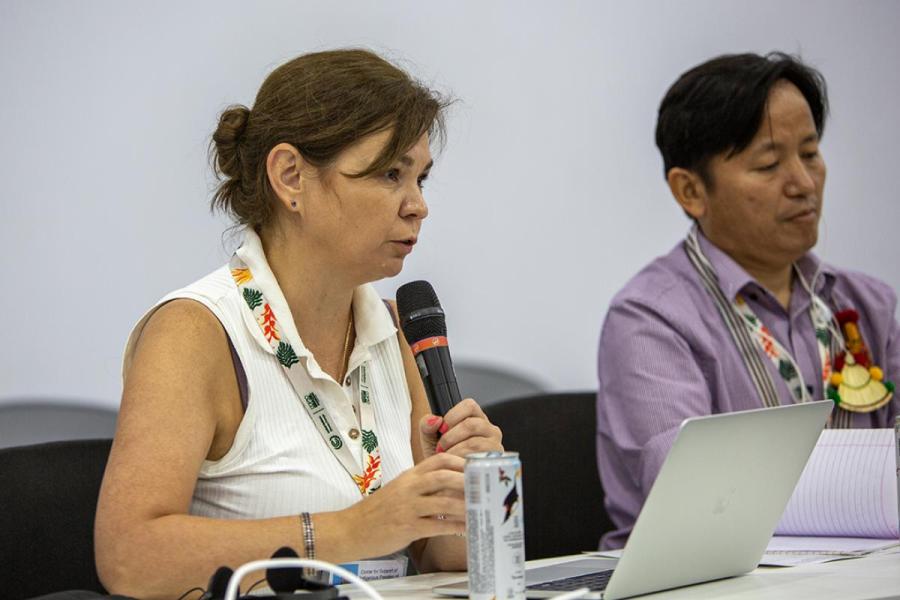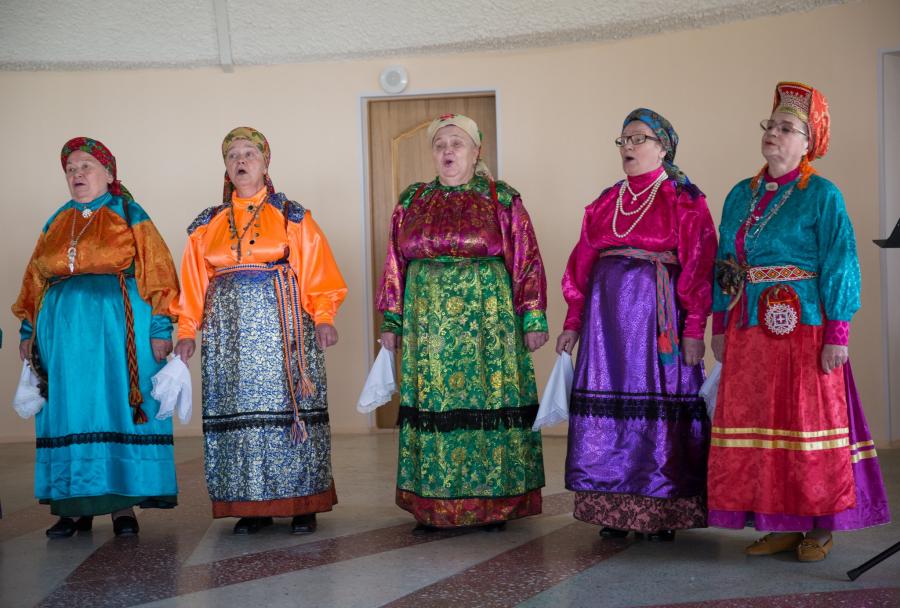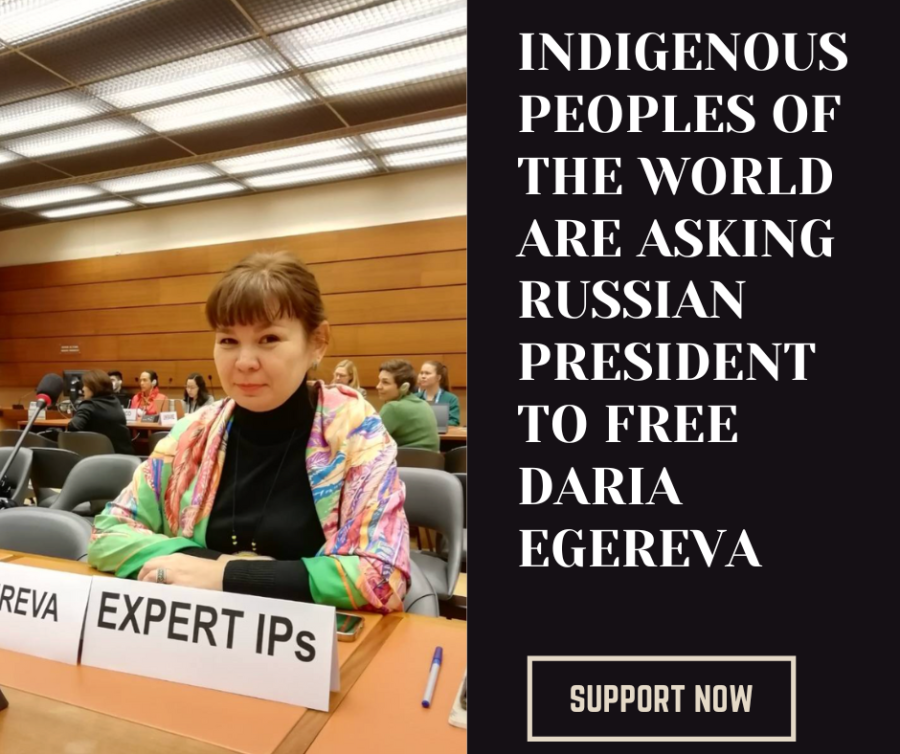October 31, 2011- In reply to a letter from Cultural Survival, Russia’s Ministry of Natural Resources and Environment acknowledged “high ecological risks” in the proposed construction of a natural gas pipeline across the Ukok Plateau, reiterating its preference for alternate routes. The letter, signed by N.R. Inamov, director of the Department of International Cooperation, states that the Altai pipeline route, which is opposed by Telengit and other Indigenous communities of the Altai region, “is in contradiction with a number of Russian federal laws on protected areas, as well as the Russian Federation’s international obligations related to the Convention on the Protection of World Cultural and Natural Heritage Sites.”
The letter also notes that the natural gas pipeline across the Ukok is not provided for in official strategic plans for regional development. Nevertheless, it could be built if it meets certain requirements. The Russian energy company Gazprom has not submitted a request for a government Environmental Impact Review, which will be required if the project is defined as “particularly dangerous,’ which is likely. A government Environmental Impact Review will require public hearings, public education about the potential impacts of the project, and public feedback.
The letter states that the pipeline would “provide natural gas to Altai Republic consumers,” generating “socio-economic development and make Altai Republic more attractive to investment.” But pipeline opponents point out that Gazprom’s Justification for Investment documents describe a high-pressure gas pipeline with no planned step-down stations for providing local gas in Altai Republic.
The Indigenous Telengit people oppose any construction on the Ukok Plateau which is sacred to them. Russian environmental organizations also oppose construction on the Ukok, which is part of the Golden Mountains of Altai World Heritage site.
See the Global Response action alert HERE, and please send your own letter to Russian officials, urging them to recognize the rights of the Telengit people and protect the sacred Ukok Plateau.
Read an English translation of the letter below.
Paula Palmer
Director
Global Program “Cultural Survival”
Global Response/Colorado Office
PO Box 7490
Boulder CO 80306 USA
Regarding construction of a pipeline across the Ukok Plateau in Altai Republic
Letter to the Russian Federation President’s Administration dated 21 August 2011, #A26-11-I-
325167
Dear Ms. Palmer!
In response to your letter of 28 July inquiring about the possible construction of a natural gas pipeline by publicly-held Gazprom across the Ukok Plateau in Altai Republic, the Russian Ministry of Natural Resources has the following response.
The Ukok Plateau is within the territory of the Ukok Quiet Zone regional nature park and is also part of the “Golden Mountains of Altai” UNESCO World Heritage Site. Legal regulation of this area is conducted in accordance with the federal law #33-FZ “On specially protected natural territories” (dated 14 March 1995), Altai Republic law #14-16 “On specially protected natural territories and sites of Altai Republic” (16 September 2003), and other regulatory laws.
According to information from Russia’s Ministry of Energy, a “western” route of natural gas delivery to China (“Altai project”) from Western Siberia along a new pipeline system in an existing transport corridor to Novosibirsk and a subsequent continuation along the mountains to the western section of the Russia-China border and then to northeastern China along the West- East pipeline is currently being developed in connection with a 24 July 2009 Memorandum of Agreement to cooperate in the natural gas arena.
Assuming the Altai Project were to be undertaken, the pipeline would increase natural gas exports and provide natural gas to Altai Republic consumers. Pipeline construction would have a significant influence on socio-economic development and make Altai Republic more attractive to investment as well as in the other Russian regions through which the pipeline would pass.
The Altai pipeline project is characterized by complex natural, climatic, engineering, and geological conditions, its great length, passage of the pipeline through protected areas, and high ecological risks.
According to information provided by Russia’s Ministry of Regional Development, construction of the Altai natural gas pipeline for export is not provided for in strategic planning documents, including the “Strategy for Siberian Socio-Economic Development through 2020” (approved by a Russian Federal government decree dated 5 July 2010, #1120-r) and “Russia’s Energy Strategy through 2030 (approved by a Russian Federal government decree dated 13 November 2009, #1715-r). The Altai gas pipeline’s construction is permissible if the necessary economic conditions are met for delivering Russian natural gas via the Altai project, as well as achieving commercial agreement with China and the resolution of ecological restrictions in the General Gas Sector Development Plan through 2030.
According to the Russian Ministry of Natural Resources, realization of a project to build a pipeline across the Ukok Plateau is in contradiction with a number of Russian federal laws on protected areas, as well as the Russian Federation’s international obligations related to the Convention on the Protection of World Cultural and Natural Heritage Sites. Because of this, the Russian Ministry of Natural Resources believes it necessary to examine alternative routes for the pipeline.
In accordance with Point 7.1, Article 11 of the federal law “On Environmental Impact Review” (#174-FZ, dated 23 Nov 1995), project documentation of sites, construction, reconstruction, and capital renovation to be conducted on federal protected areas are subject to government Environmental Impact Review, as is project documentation of particularly dangerous, technically complex, and unique sites, defense and secure sites, reconstruction, and capital renovation proposed within regional and local protected areas in cases where construction, reconstruction, and capital renovation of such sites in protected areas is permitted by Russian federal and regional laws.
Article 48.1 of the Russian federal Building Code defines dangerous production sites where hazardous substances are generated, used, processed, created, stored, transported, or destroyed inn amounts exceeding a set limit as dangerous and technically complex sites. Gas distribution systems where natural gas is used, stored, or transported at pressures of ?1.2 megapascals or liquefied hydrocarbon gases ?1.6 megapascals are not considered dangerous or technically complex sites. Thus, if the gas pipeline proposed for construction exceeds these limits, then the project will be defined as particularly dangerous and, as a result, will be subject to a federal government Environmental Impact Review, during which an evaluation of impacts on the environment will be conducted. According to the statute on assessing the impacts of an economic activity on the natural environment (#372, dated 16 May 2000), during this environmental impact assessment, the customer (implementer) is required to review alternative means of achieving the indicated economic or other activity, including a “zero” option (waiving of activity). In cooperation with local regulatory and government agencies, the customer must organize public hearings discussing the site in question during the Environmental Impact Review, including materials assessing the environmental impacts of the planned economic or other activity in accordance with Russian law. The customer shall ensure public input, including informing the public of the planned economic or other activity and involving the public in the assessment of environmental impacts of the project being undertaken by the customer at every stage of the process, beginning with preparation of the Terms of Reference for conducting the evaluation of impacts on the natural environment.
According to the Federal Service for the Oversight of Natural Resource Use (RosPrirodNadzor), as of today’s date, project documentation justifying the construction of a natural gas pipeline across the Ukok Plateau in Altai Republic has not been submitted for a government Environmental Impact Review.
Respectfully,
N.R. Inamov
Director, Department of International Cooperation



